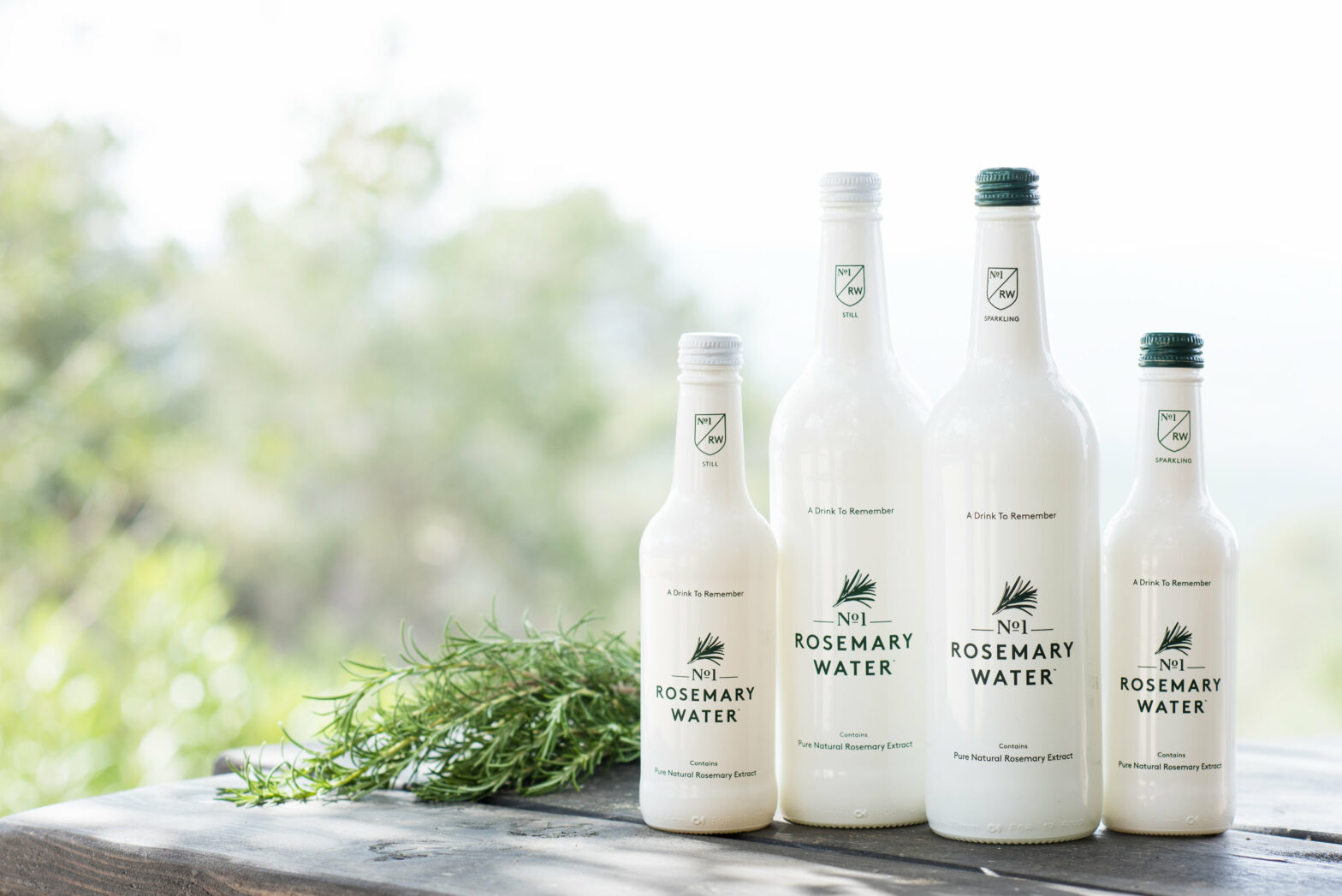Once you’ve started one business and made a success of it, you soon start itching for the next venture. Most entrepreneurs are rarely satisfied for very long, and will happily turn their lives upside down to pursue a new opportunity. As a breed, we’re also prone to impatience and like to see results quickly – start-up success can’t come fast enough for many.
In late 2016, I became enthralled with news stories about Acciaroli, an Italian village where one in 10 live to the age of 100, reportedly due to the high quantities of rosemary in the local diet. I instinctively knew that this would resonate with our increasingly health conscious world and began to investigate how one could ingest the required rosemary, without having to literally chew a stalk a day.
My wife Bonita and I launched No1 Rosemary Water in March 2017, less than six months after our idea for the world’s first pure rosemary extract drink was conceived. I believed in the product so completely that I stepped down as CEO of Spencer Ogden, the recruitment company that I started in 2010 and helped build into a multi-pound global enterprise.
Many people thought I was mad. I knew nothing about the drinks industry, nor do I have any botanical training. It was a big risk to leave a highly profitable, award-winning company to launch a unique, new drink no-one has ever heard of, but without the combination of confidence and a little naivety, no new business would ever get off the ground.
Find time, money and experts
Botanical science and extraction is time consuming, complicated and expensive. As is designing, branding and launching a new commercial drink. I was unfamiliar with both worlds so I did what I have done before with great success – invested plenty of time and money, and surrounded myself with experts.
I like to work with people I know can do a better job than me. This is particularly important in the early stages of any new business. Investing in the best people in their respective fields does cost a little equity, but it’s well worth it. We were fortunate to have an ex-senior executive from Diageo, a multinational beverages company, on-board early on. The drinks industry is a complex business landscape and his expertise helped steer us away from any major obstacles.
Our scientists worked around the clock to develop a water-based drink that contains pure rosemary extract, with no sugar or preservatives. Product design and testing, packaging, branding, advertising and event promotion were all completed within a matter of weeks. Our go-to-market strategy was simple: we secured an exclusive deal with Harvey Nichols and directed people to our online store. So far so good, but not without a couple of misfires along the way.
Make mistakes and innovate
Mistakes are a natural part of early innovation and are required on the road to start-up success. Especially when you’re venturing into unknown territory and experimenting with new ideas. I was well-armed with the key legal, financial and sales knowledge required at the early stages of launching a business, but knew little about product packaging and design, for example.
Perhaps our biggest setback was involved spray painting the neck screw tops of our first batch of 20,000 bottles white. That extra 0.1mm of paint at the top made the caps very tight and hard to get off. The early bottles we sold and used for promotional activities were tricky to open – not a great first-time user experience! We recognised and rectified our mistake quickly. Fortunately, the solution was simple enough – don’t spray paint the bottle necks – so the business didn’t suffer a huge setback.
No1 Rosemary Water is the third business I have started from scratch. I know first hand that making early mistakes is part and parcel of entrepreneurship – and, as mentioned, that mistakes are crucial to achieving start-up success. If you don’t understand where you’re going wrong, how can you improve in the future?
That said, I do believe that an element of Darwinism exists in the business world. A bad or mistimed idea, no matter how well funded, will ultimately fail. In the end, only a strong idea that is well-executed by a focused team will achieve mass market appeal.
Believe in the product
If I didn’t think No1 Rosemary Water could become a billion-dollar brand, I wouldn’t have left my own successful recruitment business and hurled myself into the very complicated beverage industry.
I personally believe in the extraordinary health benefits of rosemary. What’s more, scientific research seems to agree. The plant has long been revered for its anti-inflammatory, anti-carcinogenic and antioxidant properties. Recent clinical trials, led by Dr Mark Moss at Northumbria University, have shown that the scent of the herb can also improve memory. This research has led to a surge in rosemary oil sales during the 2017 exam season – an increase of 187 per cent according to Holland & Barrett.
Belief in your business idea is critical but you must balance that with sheer grit and determination. Anyone can come up with a good idea but only those with consistent focus can get it off the ground. The reason we now have electricity, smartphones and driverless cars is not just because of innovation. It’s thanks to bloody-minded inventors and entrepreneurs who refused to let initial failures throw them off their game and impede start-up success.
David Spencer-Percival is CEO of No1 Rosemary Water.





